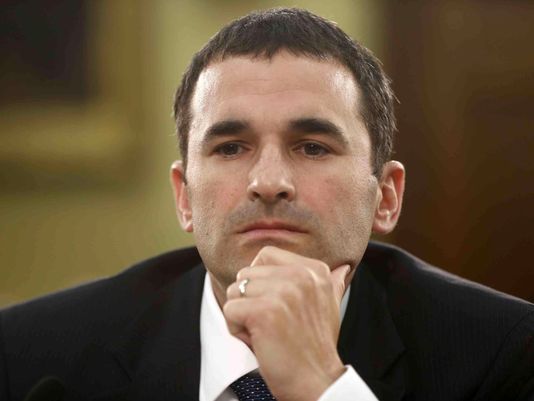New IRS chief to review 'broad spectrum' of operations
WASHINGTON — The new acting commissioner of the Internal Revenue Service said Monday he's looking at the "broad spectrum" of the agency's activities in an effort to restore public confidence, and he promised "absolute transparency" in what he finds.
Danny Werfel told a House subcommittee Monday that he has appointed two career IRS officials to oversee the unit that improperly targeted Tea Party groups for additional scrutiny. They are Ken Corbin, who takes over for the suspended Lois Lerner as head of the Exempt Organizations office, and Michael Julianelle, who will be acting commissioner for the Tax Exempt and Government Entities Division.
While the FBI, the inspector general and several congressional committees probe how the IRS decided to flag Tea Party groups, Werfel said he's already come to an "inescapable" conclusion: The targeting was inappropriate, and there was a "fundamental failure" by IRS management to prevent the affair and to halt it once it was discovered.
President Obama tapped Werfel to lead the agency last month after the scandal broke and two top IRS officials resigned. Werfel, a former controller at the Office of Management and Budget, will remain on through September.
The hearing revealed few details of who ordered the targeting and what motivated it. "During our audit, we did pose that question, and no one would acknowledge who gave that direction," testified J. Russell George, the Treasury inspector general for tax administration.
George's report last month revealed that IRS staff singled out groups with "Tea Party," "Patriot" or "9/12" in their names, sending their applications for tax-exempt status into limbo for more than a year. Werfel testified that there are still 132 "potentially political" groups backlogged for at least 120 days — and some for as long as 500 days.
"This is unprecedented, Congressman," George told Rep. Steve Womack, R-Ark. "During the Nixon administration, there were attempts to misuse the Internal Revenue Service in manners that might be comparable."
Another inspector general report due out Tuesday details $50 million spent on conferences over three years, when some IRS employees stayed in lavish "presidential" suites costing up to $3,500 a night, according to a draft report sent to the House Oversight Committee.
George said he's also looking at whether the agency issued improper bonuses to employees.
Appearing on Capitol Hill for the first time since taking the job, Werfel received a cordial reception from the House appropriations subcommittee that controls the agency's budget. "I don't know whether to admire you or pity you," Womack said.
Chairman Ander Crenshaw, R-Fla., called the targeting "an arrogant and absolute abuse of power." He said the growing controversies would cause Congress to "think very carefully" about how much money the IRS needs to operate.
"Doesn't it seem counterintuitive or seem strange that the IRS had less work to do and more money than ever to do that work that they would decide to take these shortcuts?" Crenshaw asked.
Rep. José Serrano, D-N.Y., the ranking Democrat on the panel, blamed a broken culture at the IRS and said the problems go beyond the Tea Party. "Clearly, this is an issue that has spanned a number of years, and this scandal is just the most recent one that we know about," he said. But he said cutting the IRS's budget could invite more trouble.
Werfel said he wasn't prepared to blame the scandal on the agency being underfunded. "It would be a mistake for me to come in and ask for more money as a solution," he said.










